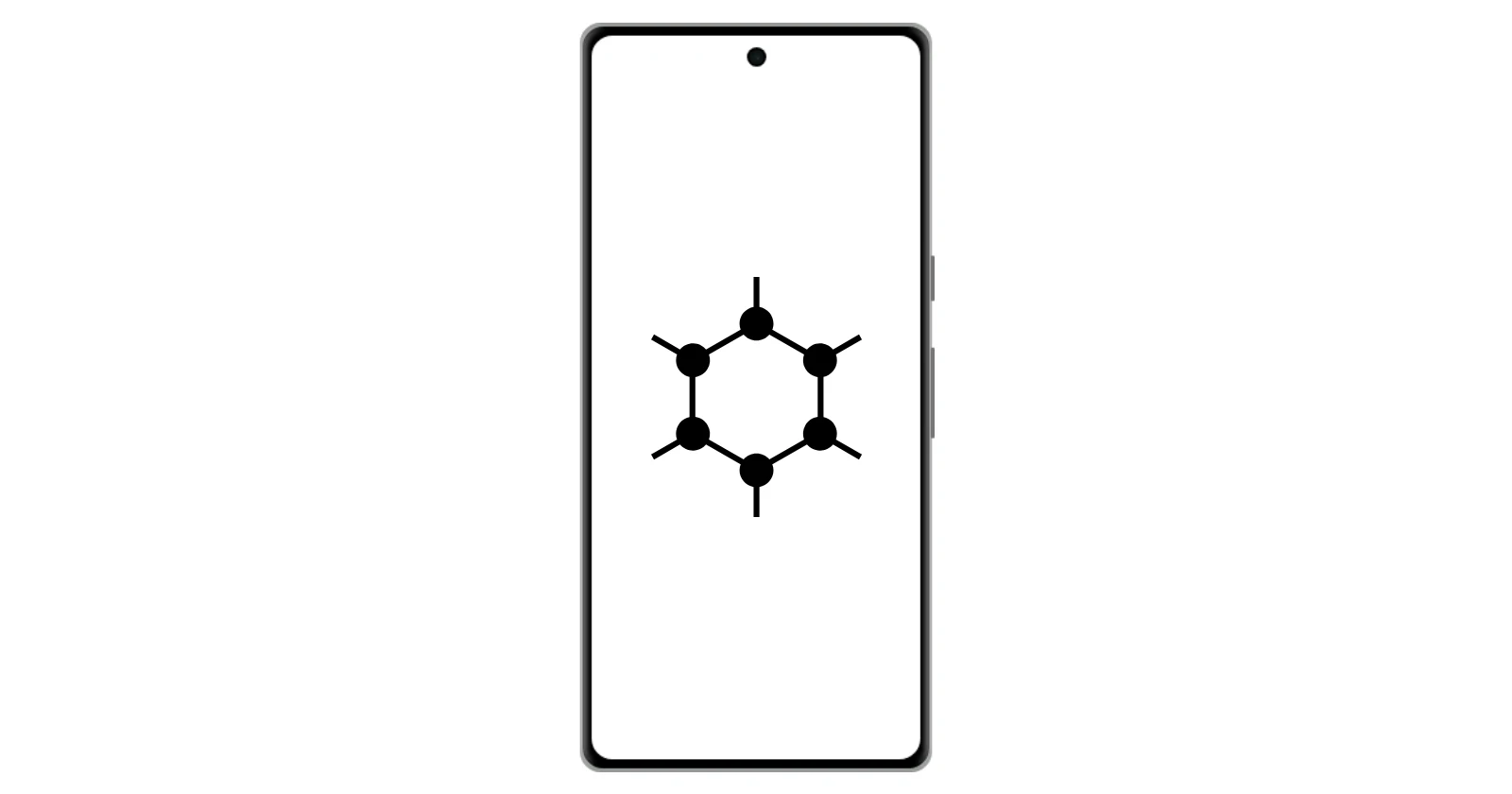The world of privacy-focused smartphones is suddenly heating up, and the gloves are officially off. GrapheneOS, the custom operating system lauded by privacy freaks and recently hailed as the gold standard for device security, is currently embroiled in a very public feud with an unnamed rival.
In a blistering statement posted to social media, the GrapheneOS team accused a “small company” of launching a product and immediately attacking GrapheneOS with “misinformation and libel” since November 12.
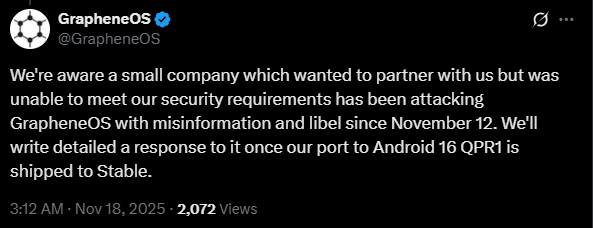
The core of the drama? The mystery company allegedly sought a partnership with the GrapheneOS team but was rejected because they were “unable to meet our security requirements.” This rejection and the subsequent launch of a rival device appear to have triggered a retaliatory PR campaign that GrapheneOS is not taking lightly.
The GrapheneOS team did not mince words, giving several damning clues about the identity of their new rival. They state the company was rejected for failing to meet stringent security standards, and subsequently launched a device using a “fork of LineageOS without standard privacy and security patches or protections.”
The GrapheneOS team views this as a desperate move. They claim the company’s launch announcement went “out of the way to attack GrapheneOS with inaccurate claims,” doubling down on this strategy in online forums. “Companies marketing phones as being private while lacking basic privacy patches and protections clearly feel very threatened by GrapheneOS,” the team stated.
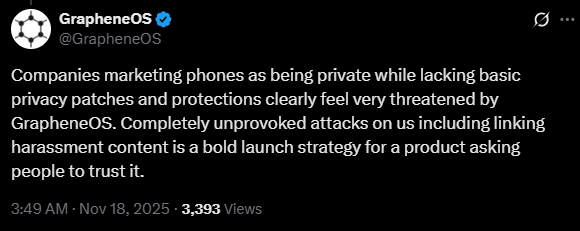
For now, GrapheneOS says its priority remains shipping the Android 16 QPR1 port and focusing on their “serious OEM partnership with a large company actively working on implementing MTE,” which is intended to end their Google Pixel exclusivity.
Which “small company” is GrapheneOS talking about?
The pursuit of a new, major OEM partner to replace the Google Pixel line is clearly putting pressure on smaller players in the privacy space, serving as the likely catalyst for this rivalry. Based on the specific clues provided by GrapheneOS and recent product launches, two camps of suspects stand out.
The explicitly rejected: Fairphone
The “unable to meet our security requirements” comment is an exact echo of GrapheneOS’s explicit rejection of a potential partnership with Fairphone last month. At the time, the GrapheneOS team publicly stated that Fairphone devices “are not secure devices meeting our requirements,” citing a huge lag in Android versions, security patches, and a lack of important hardware-based security features. They backed this up with a detailed timeline comparing a three-year-old Pixel 6 (on Android 16 QPR1) to the Fairphone 4 (stuck on an end-of-life Android 13 yearly release).
This rejection perfectly fits the motive, especially since the latest Fairphone 6 runs on /e/OS, a fork of LineageOS, as further hinted in the clue.
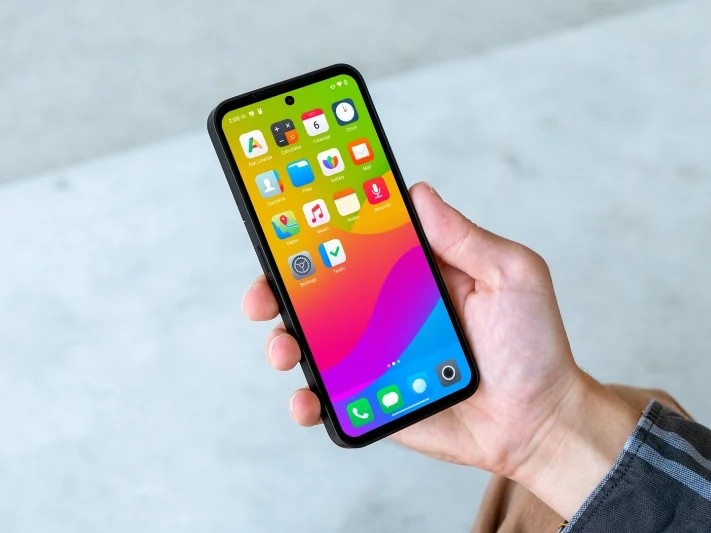
The likely culprit: Murena, HIROH, and /e/OS
The “launched a device using a fork of LineageOS” clue is far more specific and points directly to devices running /e/OS, the deGoogled operating system used by recent launches like the Murena SHIFTphone 8 and the HIROH Phone Powered by Murena. /e/OS is, in fact, an open-source fork of LineageOS.
Furthermore, the launch chatter around the HIROH Phone included comments that seem to be the “dig aimed at GrapheneOS” mentioned in the statement. The CEO of Avarana, Victor Cocchia, heavily emphasized that hardware kill switches were the ultimate solution, arguing that “software security solutions were not the answer” because they could always be overridden. He also praised /e/OS for offering the “freedom to choose” to download mainstream apps, a position that runs counter to the strict security principles prioritized by GrapheneOS.
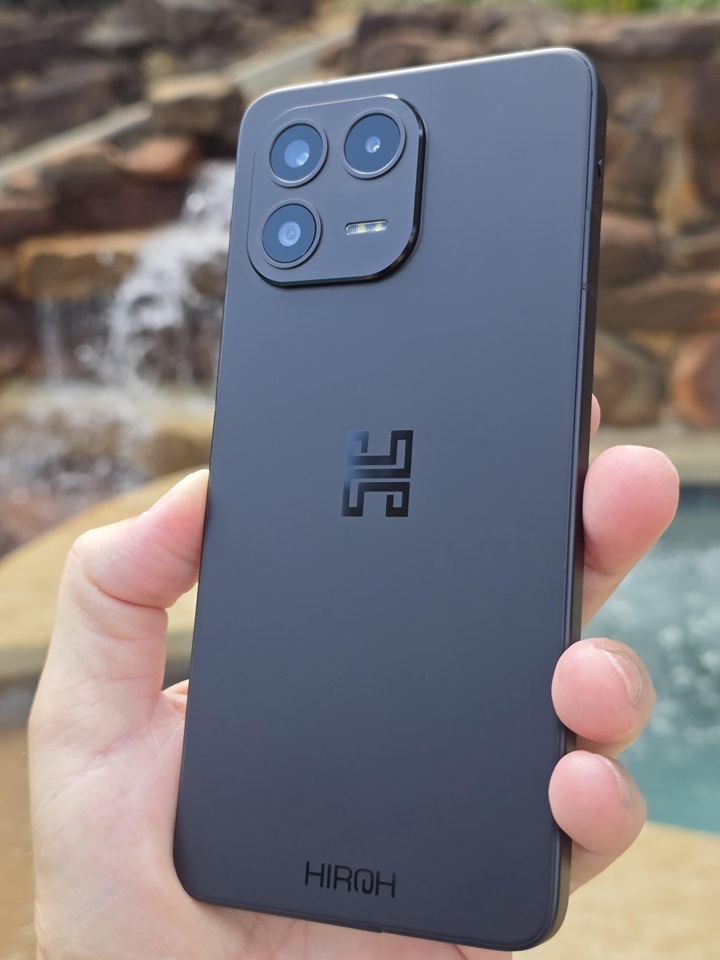
Given that the company is described as “small,” uses a “fork of LineageOS,” and its launch was accompanied by statements that subtly critique a software-first approach like GrapheneOS, the HIROH/Murena camp appears to be the more complete fit for all the accusations.
Regardless of the target’s identity, this rivalry underscores the high-stakes battle for control in the burgeoning and highly lucrative market for truly private mobile devices. For now, users can expect a full “debunking” from the GrapheneOS team once their critical Android 16 QPR1 update is shipped.

